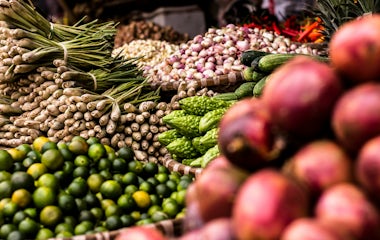Inclusive Business Model Review: Endline Report for Syngenta, Kenya
Syngenta (SYT) is a leading global agribusiness that produces seeds and crop protection products. To reach and serve the small and medium-scale farmer segment the Mavuno Zaidi™ (MZ) project was launched in 2014 by Syngenta East Africa primarily targeting farmers in the potato and tomato value chains in Kenya. It had 3 main objectives: enhance access to input finance, information, and markets.
To achieve these objectives SYT operates a service coalition model where they facilitate access to inputs, training, and information as well as linkages to financial service providers (FSPs) and buyers. SYT is the anchor in the service coalition; taking up the responsibility of partnership building and bears the largest cost in the coalition. SYT had the objective to scale the Mavuno Zaidi™ offering to 52,000 farmers across 8 counties in Kenya. Ultimately facilitating the farmers to increase their productivity and livelihoods.
In 2019, IDH partnered with Syngenta to support the Mavuno Zaidi project over a 3-year period. A baseline inclusive business model (formerly service delivery model) analysis was conducted which can be found here.
At the end of the project this endline analysis was conducted to:
- Provide actual project’s performance figures (at both farmer and company level) over the implementation period (’20 – ’23).
- Reflect on the contextual and internal drivers influencing this performance.
- Provide recommendations on emerging opportunities and risks to be managed to enhance sustainability.
Some of the key outcomes from the project include;
- The success of the project was highly pegged on facilitation of access to credit to enable farmers purchase high quality inputs. Partnerships with key financial service providers however, faced challenges key among them the global COVID pandemic that resulted in closure of one of these partners. This highly impacted the scale ambitions of the project.
- Finance only became accessible to both tomato and potato farmers from late 2021 which impacted the land size and yield growth assumptions, revealing the critical effect of credit on performance of smallholder farmers.
- Further, the increase in input prices due to global and local factors led to farmers reducing acreage to manage the investment required, indicating farmers’ vulnerability to global shocks and market volatility.
- Overall, farmer net income grew from the baseline over the project period partly attributed to the support provided through the project.
Related Resources



Your Insights Hub journey has just started
Sign up here for access to updates - and industry insights and innovation - from the Smallholder Inclusive Business Newsletter.